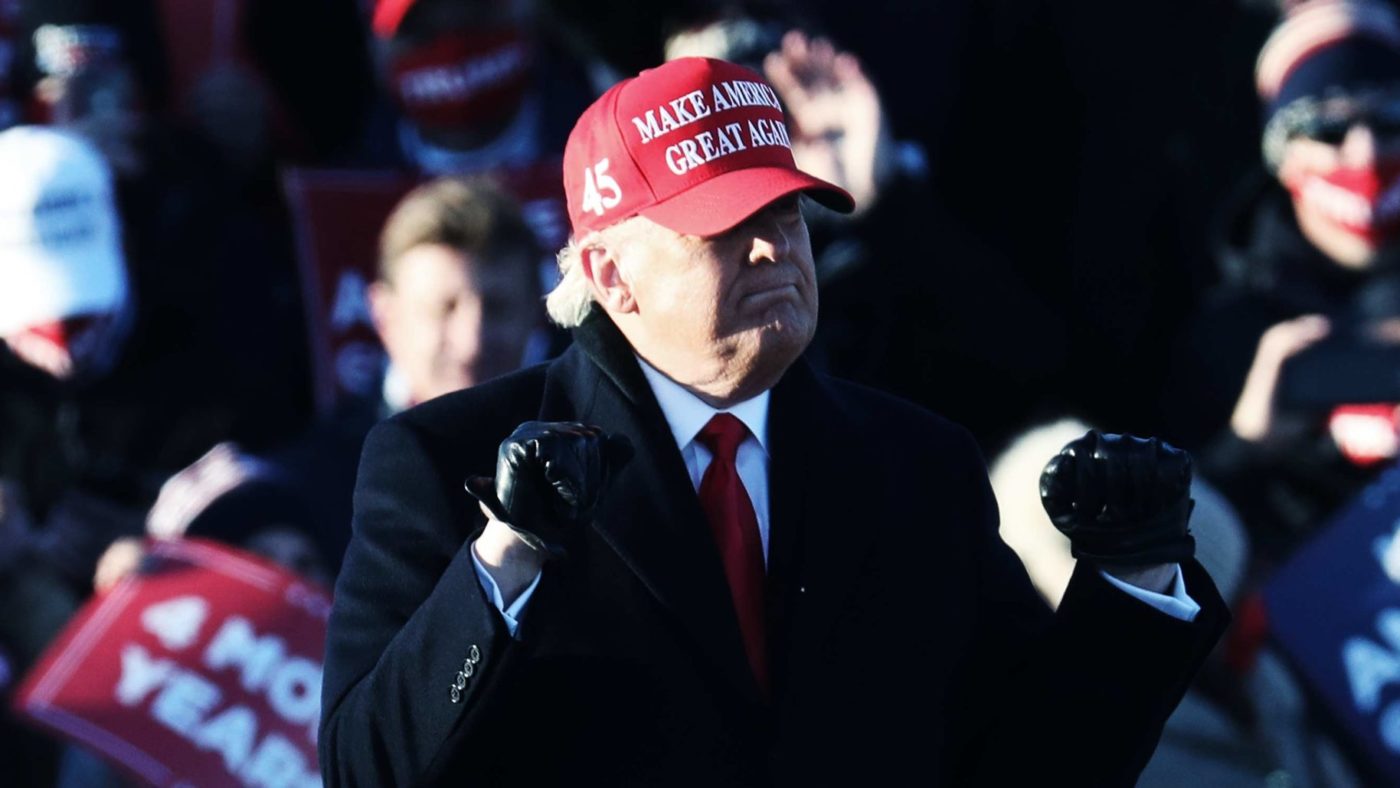With all states declared and his legal challenges collapsing one by one, the writing appears to be very much on the wall. Donald Trump is on his way out of the White House.
Although he was convincingly defeated in both the Electoral College and the popular vote, his performance has thrown up a number of eye-catching developments which will give the Republican establishment much food for thought.
Though derided by his critics as a racist white-supremacist sympathiser, Trump managed to win the highest share of non-white voters for a Republican presidential candidate in 60 years – building on his 2016 support among the US’s Hispanic and African-American voters. Demonstrating his cross-class ‘pan-Latino’ appeal, Trump managed to win considerable support among both established middle-class Cuban-Americans in Florida and working-class Mexican-Americans living in counties on the Texas-Mexico border. For all the talk of Trump being an anti-black misogynist, the incumbent President made progress among both African-American men and women, albeit from a pretty low base.
But perhaps the most intriguing development was Trump’s performance among Muslim voters. For a politician so often presented as an Islamophobic bigot, in no small part thanks to his travel ban on Muslim-majority countries, he did remarkably well with this part of the electorate. Post-election surveys suggest Trump won about 35% of Muslim American votes, exceeding his support among Jewish-Americans (30%) and US voters of no religion (25%). How did a man described by Sadiq Khan as “one of the most egregious examples” of the global far-right defy expectations in this way?
Firstly, it is worth noting that Muslims have previously been a reliable voting constituency for the GOP – with some 70% voting for George W. Bush against Al Gore back in 2000. Indeed, on the campaign trail during that election, Bush spoke warmly of Americans who attend “a church, synagogue, or mosque”. It was a voting bloc which proved crucial for Bush, with over 46,000 Muslims backing him in the swing state of Florida, where the Republican triumphed by a razor-thin margin of just 537 votes.
The pendulum swung dramatically in the wake of the 9/11 attacks, however. Bush’s uncompromising rhetoric about the War on Terror, heightened surveillance under the Patriot Act and the invasion of Iraq all contributed to a fundamental breakdown in his party’s relationship with Muslim Americans. Muslim support for Bush had plummeted to a meagre 7% by the 2004 presidential election.
So how did Trump manage to win this section of the population over? For a start, his non-interventionist approach to foreign policy is likely to have gone down well with US Muslims who have grown tired of destabilising military campaigns in the Middle East and North Africa. Just as important has been his administration’s role in the normalisation of Sunni-Israeli relations has involved Muslim-majority nation-states such as the UAE, Bahrain, Sudan, and Kosovo – a remarkable development for interfaith global diplomacy. Another factor may be Secretary of State Mike Pompeo’s outspoken criticism of China’s brutal treatment of the Uyghur Muslims in Xinjiang province – which he has called a “human-rights violation on a scale we have not seen since World War II”.
It’s not all about foreign policy though. A significant number of Muslim-Americans are naturally inclined towards the Republicans’ social conservatism. A majority – 55% – said they would not favour political alliances with LGBTQ activists, and on abortion they are more likely than Jewish or Catholic Americans to to support alliances with pro-life advocates. That reflects the obvious reality that culturally progressive approaches to issues such as LGBT rights and abortion are at odds with conventional Islamic morality. By the same token, the Democrats’ approach to those issues has little in common with a religious-inspired, family orientated conservatism. Donald Trump’s front assault on the excesses of ‘woke’ politics is also likely to have appealed to a sizeable section of the Muslim population.
Above all, Trump’s relatively high support among Muslim Americans is a rejoinder to the idea that his was a politics of exclusionary white nationalism. His relatively strong performance among minorities – with the usual ‘for a Republican’ caveat – suggests there is a cross-cutting appeal for a patriotic, multi-racial, inter-faith conservatism. Trumpism may have been concentrated on the man himself, but his focus on fiercely anti-socialist sentiment, economic patriotism, robust border security, faith, traditional social structures and support for the police is a message that appeals to Americans of all races and classes.
And though the Republicans undoubtedly have a lot of ground to make up among non-white Americans, Trump has fashioned a modern, inclusive conservatism, albeit one built on the traditional values of family, entrepreneurship, secure borders and relative isolationism in foreign affairs. Far from simply doubling down on support from whites, Trump also showed there are plenty of other voters out there amenable to the Republican message. In doing so he has given the lie to the pundits who suggest an inevitable Democratic majority as America’s non-white population grows.
So, while Trump may have been defeated at the ballot box, Trumpism is very much here to stay. If the Republican Party establishment chooses to ignore the lessons of his campaign, it will be at its peril.
Click here to subscribe to our daily briefing – the best pieces from CapX and across the web.
CapX depends on the generosity of its readers. If you value what we do, please consider making a donation.


